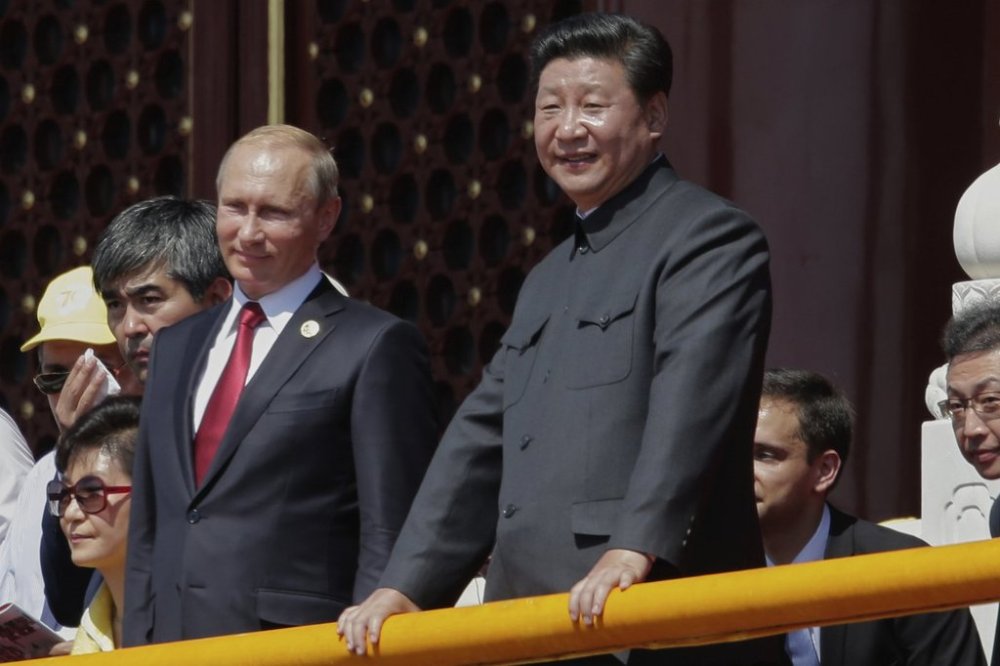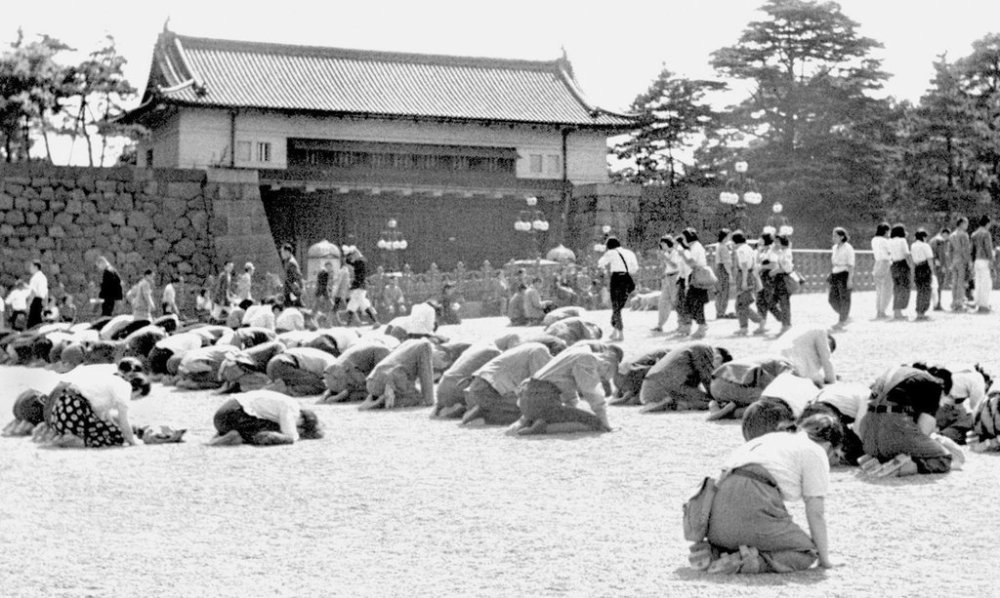Japan and China commemorate World War II anniversary on different dates
Advertisement
Read this article for free:
or
Already have an account? Log in here »
To continue reading, please subscribe:
Monthly Digital Subscription
$0 for the first 4 weeks*
- Enjoy unlimited reading on winnipegfreepress.com
- Read the E-Edition, our digital replica newspaper
- Access News Break, our award-winning app
- Play interactive puzzles
*No charge for 4 weeks then price increases to the regular rate of $19.00 plus GST every four weeks. Offer available to new and qualified returning subscribers only. Cancel any time.
Monthly Digital Subscription
$4.75/week*
- Enjoy unlimited reading on winnipegfreepress.com
- Read the E-Edition, our digital replica newspaper
- Access News Break, our award-winning app
- Play interactive puzzles
*Billed as $19 plus GST every four weeks. Cancel any time.
To continue reading, please subscribe:
Add Free Press access to your Brandon Sun subscription for only an additional
$1 for the first 4 weeks*
*Your next subscription payment will increase by $1.00 and you will be charged $16.99 plus GST for four weeks. After four weeks, your payment will increase to $23.99 plus GST every four weeks.
Read unlimited articles for free today:
or
Already have an account? Log in here »
BENXI, China (AP) — Eighty years after the end of World War II, Japan and China are marking the anniversary with major events, but on different dates and in different ways.
Japan remembers the victims in a solemn ceremony on Aug. 15, the day then-Emperor Hirohito announced in a crackly radio message that the government had surrendered, while China showcases its military strength with a parade on Sept. 3, the day after the formal surrender on an American battleship in Tokyo Bay.
Japan occupied much of China before and during WWII in a devastating and brutal invasion that, by some estimates, killed 20 million people. The wartime experience still bedevils relations between the two countries today.

A museum in the Chinese city of Benxi highlights the struggles of anti-Japanese resistance fighters who holed up in log cabins through fierce winters in the country’s northeast, then known as Manchuria, before retreating into Russia.
They returned only after the Soviet Union declared war on Japan and launched an offensive into Manchuria on Aug. 9, 1945 — the same day the U.S. dropped an atomic bomb on Nagasaki — adding to the pressure on Japan to surrender.
Nowadays, it is China’s military that raises alarm as it seeks to enforce the government’s territorial claims in the Pacific. When Japan talks of building up its defense to counter the threat, its militaristic past gives China a convenient retort.
“We urge Japan to deeply reflect on its historical culpability, earnestly draw lessons from history and stop using hype over regional tensions and China-related issues to conceal its true intent of military expansion,” Chinese Foreign Ministry spokesperson Guo Jiakun said last month.
Japan’s surrender broadcast
Hirohito’s prerecorded surrender broadcast on Aug. 15, 1945, was incomprehensible to many Japanese. He used arcane language and the sound quality was poor.
What was important, historians say, was that the message came from the emperor himself. Hirohito was considered a living god, and the war was fought in his name. Most Japanese had never heard his voice before.
“The speech is a reminder of what it took to end the wrong war,” Nihon University professor Takahisa Furukawa told The Associated Press in 2015.
The current emperor, Hirohito’s grandson Naruhito, and the prime minister are set to make remarks at the annual ceremony in Tokyo on Aug. 15, broadcast live by public broadcaster NHK.
At last year’s event, Naruhito expressed deep remorse over Japan’s actions during the war. But on the same day, three Japanese cabinet ministers visited Tokyo’s Yasukuni shrine, drawing criticism from China and South Korea, which see the shrine as a symbol of militarism.

China marks Victory Day
Japan surrendered on Sept. 2, 1945, in a ceremony on board the American battleship USS Missouri.
The foreign minister, in a top hat and tails, and the army chief signed on behalf of Hirohito. The signatories on the other side were U.S. Gen. Douglas MacArthur and representatives from China and other nations that had fought Japan.
China designated the next day, Sept. 3, as Victory Day.
Eleven years ago, the Communist Party stepped up how China marks the anniversary. All of China’s top leaders, including President Xi Jinping, attended a commemorative event on Sept. 3. The renewed focus came at a time of rising tension with Japan over conflicting interpretations of wartime history and a still-ongoing territorial dispute in the East China Sea.
The next year, China staged a military parade on the 70th anniversary of the end of the war.
A decade later, preparations are underway for another grand parade with missiles, tanks and fighter jets overhead. Russian President Vladimir Putin is among those expected to attend.

